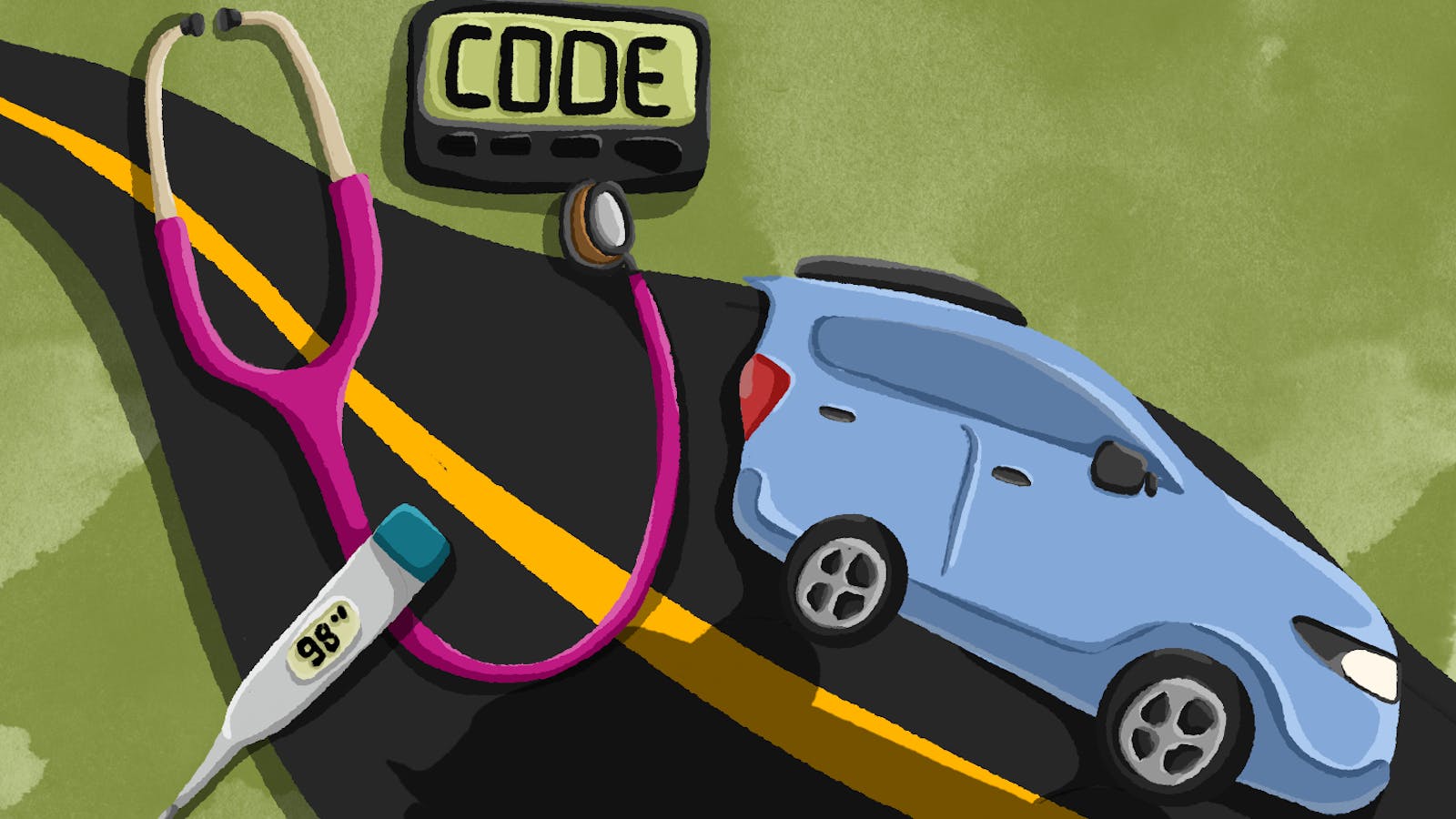Clinics is a program for ASU nursing students to observe registered nurses in hospitals and various medical care facilities to gain real-world experiences. They are required for graduation, but transportation to facilities can be a struggle in itself.
Finding a way to get to clinics about once a week is a point of anxiety, in an already demanding and stressful curriculum, said Destiny Laing, a senior nursing student.
The surveys are released to all nursing students before they receive their clinical placements, but they don’t guarantee any specific setting or location and can be anywhere in the greater Phoenix metro area, Nancy Kiernan said, Senior Director of Academic Services at Edson College of Nursing. and Health Innovation, in an email.
“I pointed out to them (clinical coordinators) that I wanted a nearby hospital because I didn’t have transportation, and honestly I don’t know if they considered that,” Leslye Corrales Garcia said.
Students can be assigned to a day or night clinic, varying from 5 to 12 days per semester and lasting approximately 13 hours, Kiernan said in the email.
“You can say you have a preference for a hospital, but if there’s no room (for you), they’ll put you anywhere,” Laing said.
After Edson College emailed upperclass BSN nursing students that their placement would be in Phoenix or Paradise Valley, Laing immediately contacted her coordinator to let her know she had no reliable transportation .
A trip by public transportation, which is how Laing usually gets to class, from the downtown Phoenix campus to Paradise Valley can take more than an hour regardless of traffic.
“Transportation is very stressful when you don’t have a car, you have to be creative,” Laing said.
Although Laing’s clinical coordinator was unable to help her with transportation, she did manage to lobby for her to be placed in a closer location.
“While it is the student’s responsibility to arrange transportation to and from clinical sites, we encourage the use of public transportation, ridesharing, and carpooling,” Kiernan said in the email.
During Corrales Garcia’s first three weeks at the Carl T. Hayden Veterans Administration Medical Center, she carpooled with friends who also live at Fusion on First on the downtown Phoenix campus.
Now they’re at the Southeast VA Clinic, which is about 30 to 40 minutes from the downtown Phoenix campus.
“If I didn’t have a carpool with me, it would be really difficult for me,” Corrales Garcia said. “I would have considered doing something else at this point because transportation is a very important part of the nursing program.”
Some people walked very long distances, like all the way from Peoria to the Southeast VA clinic in Gilbert, about an hour and a half, said Charlene Tran, a young nursing student.
Edson encourages students to connect with their eight-student clinical team to discuss carpooling, Kiernan said in the email.
“I feel guilty carpooling and asking people to drive me, so I just Uber instead of asking them every time, but it’s really expensive,” Laing said.
Laing’s first clinic days cost around $30 for a one-way Uber, but costs usually hover around $20 on good days.
“I was really scared, I didn’t know what I was going to do because I didn’t have a car, I was worried (about) where I was going to be placed and how far it was going to go because I I knew it was going to be expensive if I couldn’t find anyone around me to carpool,” Corrales Garcia said.
Something like intercampus shuttles would be really helpful for students who don’t have transportation, since many students are out of state or don’t have driver’s licenses, according to Tran.
Making every kind of effort to accommodate students for whom carpooling is not an option is necessary, Laing said.
“I know they say it’s our responsibility, but it adds up, and I’m not working right now because nursing, at least for me, is really stressful,” Corrales Garcia said.
Especially for students who have more distant clinics, the University should offer them options closer to where they live or at least try to find a solution, said Andrea Arana, a young nursing student.
“At this time, Edson University has no plans to provide transportation to clinical rotations except to encourage students to use public transportation, carpooling, and carpooling,” Kiernan said in the email.
“I feel like they (the instructors and clinical coordinators) all assume that we all have our own cars and we all drive, which isn’t true,” Laing said.
Edited by Jasmine Kabiri, David Rodish and Grace Copperthite.
Contact the reporter at [email protected] and follow @AlyssaBickle1 on Twitter.
Like The State Press on Facebook and follow @statepress on Twitter.
Alyssa BickleCommunity journalist
Alyssa Bickle is a staff reporter, writing for the Community and Culture office. She is a writing tutor for University Academic Success Programs and a member of the Center for the Study of Religion and Conflict. She is pursuing bachelor’s degrees in journalism and political science.
Continue to support student journalism and make a donation to the state press today.

